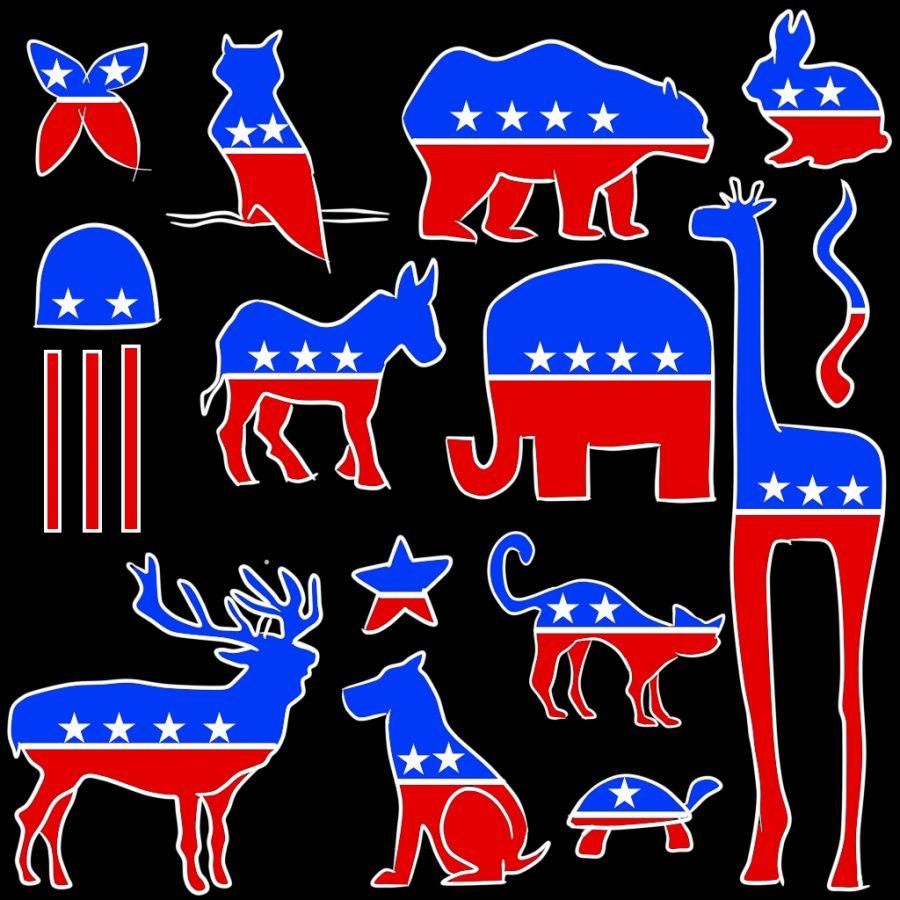Rise of the Third Political Party
December 12, 2016
Sometimes the American people look at the two main political parties’ candidates and prefer not to choose either. As Jimmy Yu ‘19 puts it, “This year was a great example of the need for multiple parties. Most people didn’t want to pick Trump or Clinton.”
While there were additional candidates such as Jill Stein and Gary Johnson, they were viewed as so unlikely to win, many voters decided to just choose one of the two main options or not vote at all.
While the American democracy system has always allowed multiple political parties, a third-party candidate or independent candidate has never won the presidential election. The Democratic and Republican parties have successfully represented the country’s interests so far and have moved the country forward. So why should there be more political parties?
The main issue is that both parties have their own ideas and refuse to work with the opposing party. This was evident when the Republican-controlled Congress thwarted the Obama administration on legitimate concerns as much as purely ideological ones. For example, they refused to give Justice Merrick Garland a chance to be considered for Supreme Court due to the fact that he was a Democratic nominee. This kind of behavior goes against the interests of the American people and creates an image of government dysfunction. If there were a third political party, Congress could have some of their representatives and more decisions could be made.
In such political environment, many people look to the third-party candidates for hope. Some people find that their best beliefs are represented in these third-party candidates, but the two “main” parties overshadow these alternate parties. This discourages the smaller parties’ supporters.
Alice Wu ‘20 asserts, “There are so [many] diverse needs in America, it’d be almost impossible for two candidates to represent most or all of them.”
This de facto two-party system leaves many of America’s ethnic, economic, social, and geopolitical interests unrepresented. This could create a lower voter turnout during the election, because many people do not see the point of voting for a person they do not fully stand behind and support.
Other countries do have multiple party systems and are successful. Countries like Canada and Denmark have more than two political parties in their government and their people feel more represented. In fact, the voter turnout in Canada is around 70% and Denmark’s voter turnout is around 85%, while America’s voter turnout is around 60%. More people find their beliefs represented in Canada and Denmark and therefore vote, while in America two candidates cannot represent it all alone and voters do not want to vote.
Sufficient funding is one necessity to make third-party candidates viable enough to challenge the Republican and Democratic parties. Only with enough funding to support the vast campaign resource needs could a viable new party possibly emerge. There should be federal funding of a third-party. Because there are many small parties that will want such federal funding, the government can award federal funding only to the third party that polls the highest before the general election.
Having a new charismatic and powerful leader at the head of a third party is another important step to third-party success. An example can be seen in this year’s election: the significant part of the electorate distrusted Clinton, while Trump seemed to attract scandal after scandal. The want for alternatives was very strong and if a third-party candidate was able to be a strong charismatic leader, he or she might have won.
If a multi-party political system were more effectively implemented into the government, it would truly create a positive impact on the community and all voters. Voter turnout would be much higher and elections would be met with much higher satisfaction, as the votes would not be forced decisions among bad choices. Such a system has the potential to be an exciting new era in American politics and change how America will progress.


Jade VanHara • Dec 20, 2016 at 11:26 am
The article was very insightful and interesting!!!
danielle conti • Dec 20, 2016 at 11:24 am
showed how overshadoweed the third parties always are.
jenna ascolese • Dec 20, 2016 at 11:21 am
WHen it talked about the third party it reminded md of the election this year and how many people had voted for a third party but it had been overshadowed anyways
Victoria Vena • Dec 20, 2016 at 11:16 am
It’s so frustrating as a politically active citizen to hear people say “Oh, I would vote for them but they’ll never win” This article highlighted that beautifully!